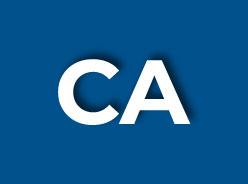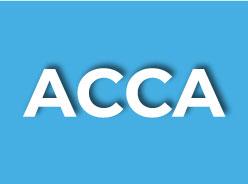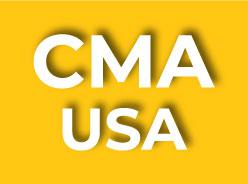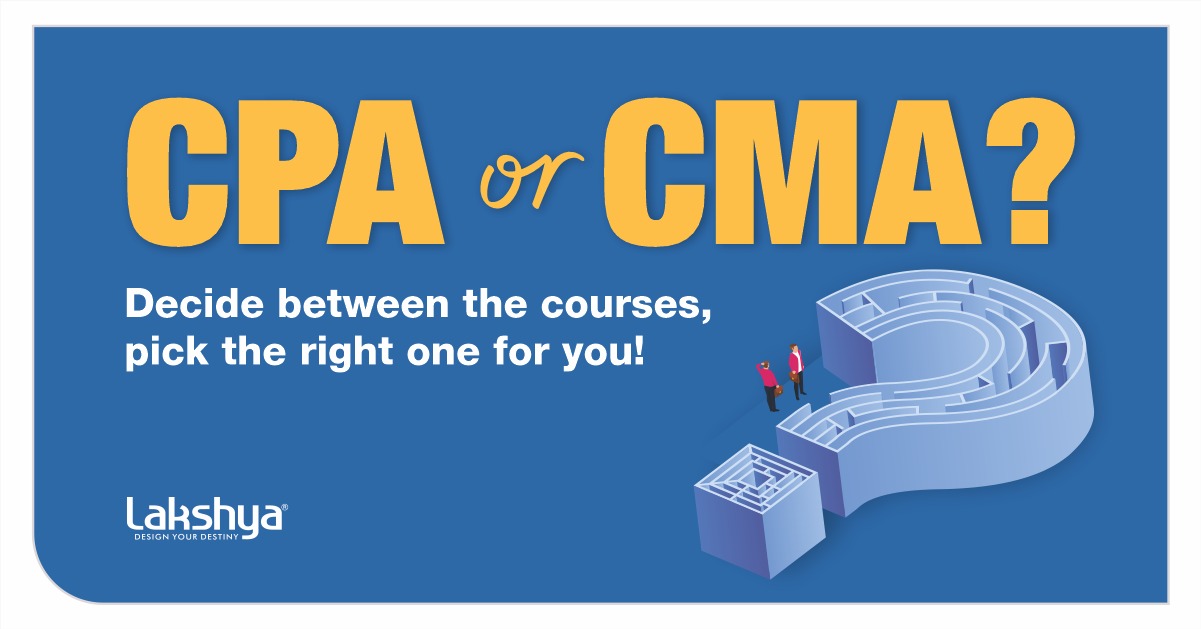CPA and CMA are both certifications that bring a lot of benefits to your employer. But when you are picking a course after investing so much of your time and money, you have to be sure that you are picking the right course that will help you get your dream job.
Whether it be Cost Management Accountant or Certified Public Accountant, both are certifications that will enable you to be elevated above your peers.
CPA is more focused on the US accounting principles and tax laws, it has been considered as the Gold standard for all accountants, regardless of their field or career goals. CPAs even though are more geared towards a work-life in the public sector can also work in a firm of any size with any public or private company.
On the other hand, CMA is a global certification which will enable its aspirants to take on leadership roles with ease. Every industry or organization requires a CMA, even though they primarily work in the private sector. The biggest highlight about CMA is that it blends both accounting acumen along with business concerns.
With both, the courses you can be assured that they are both recipients of good financial compensation are widely regarded. So let’s get into picking the right one for you and which would be a good fit for your career.
- The topics covered on the CPA and CMA exams
CMA’s are required to demonstrate a good grasp on both management, accounting and financial management concepts in subjects such as business economics, probability and statistics.
The CMA exam is set in two parts:
- Part 1 - Financial Planning, Performance and Analytics
- Part 2 - Strategic Financial Management
The CMA exam spans across 4 hours and has 100 MCQ’s and 2 essay scenarios
With the CPA exam, it will be twice as long. Candidates should pass 4 sections with topics ranging from Auditing and Attestation (AUD), Financial Accounting and Reporting (FAR), Regulation (REG), and Business Environment and Communication (BEC). Each exam section is 4 hours long and consists of Multiple-Choice Questions and are Task-Based.
CPAs are expected to know in-depth about various technical topics such as information systems, controls, risk, and even more under the new proposed CPA evolution model. The new model will be implemented no earlier than January 2024. With this new model, students will be able to choose their specialization. But after all these changes take place, CPAs will be expected to showcase their technical knowledge and skills beyond just their area of interest.
So if you are looking to specialize in business decisions then they should consider CMA. But those who want to showcase their breadth of knowledge should look into CPA
How difficult are the exams?
Both the exams need its candidates to show different levels of knowledge on topics. There are various categories which will test the levels of the candidate’s ability to test a topic such as analyzing scenarios on how to handle it.
The pass rates for both the exams are pretty much the same, the pass rate for CPA will be slightly higher.
Both the exams are not easy and will require dedication from your end with many hours for you to pass. But CMA’s have said that they spend less time studying compared to their CPA counterparts.
All candidates should consider using a review course to save time and money during their exam preparation.
- Requirements for both the exams
For both the exams, just passing the exams is not the only criteria. Candidates are also required to have a few years of experience and have attained a certain level of education.
The requirements for CPA vary depending on the state, but on average students need 150 credit hours along with some accounting courses. Some states need as little as 140 hours.
CPA’s are also required to have experience working in the field. This will ensure that they don’t just have the book knowledge but will also have real-world skills.
In comparison to CPA, the CMA certificate needs you to have only a bachelor's degree that you don’t have to complete before enrolling the CMA programme, you just need to complete the degree within 7 years on enrolling the program to be certified.
CMA also needs you to have 2 years of experience before they can get a certificate. While CPA jurisdictions typically require some form of public accounting, CMA requires the experience to be in a position that routinely involves management accounting principles.
What benefits will I get with each course?
Both exams are a high priced investment, but the payback you will receive are worth much more than any investment.
IMA puts out a yearly salary survey
| Age Range | CPA | CMA |
| 20-29 | 29% | 19% |
| 30-39 | 9% | 24% |
| 40-49 | 16% | 32% |
| 50 and Older | 22% | 25% |
| All | 29% | 36% |
Holders of either certification (or both) state they have increased job security and more opportunities than they would have had without their certification. Firms, companies, and industries across the globe recognize the value of these certifications and actively seek out prospective employees who have earned them or are in the process of earning them.
So now you can make an informed decision. Do keep in mind though that most students take a CMA as it is easier to get and you can earn it while meeting the additional education requirements of the CPA. The CMA exam is also much cheaper to get while in school, saving students money. Remember, you don’t need to meet your education or experience requirement for CMA until 7 years after enrolling in the program.

 ABOUT LAKSHYA
ABOUT LAKSHYA  WHY CHOOSE LAKSHYA
WHY CHOOSE LAKSHYA  MISSION AND VISION
MISSION AND VISION  CHARTERED ACCOUNTANCY (CA)
CHARTERED ACCOUNTANCY (CA)  ACCA
ACCA  CMA-USA
CMA-USA  RESULTS
RESULTS 


